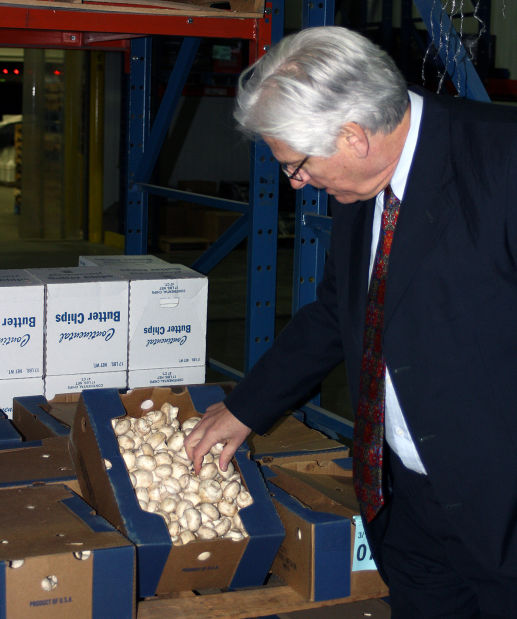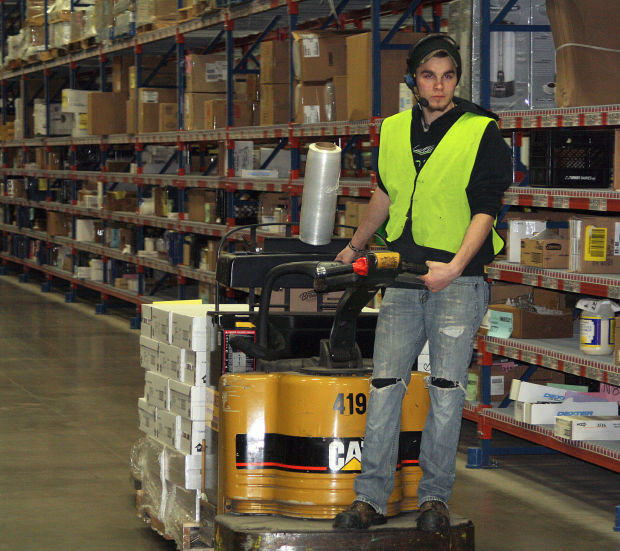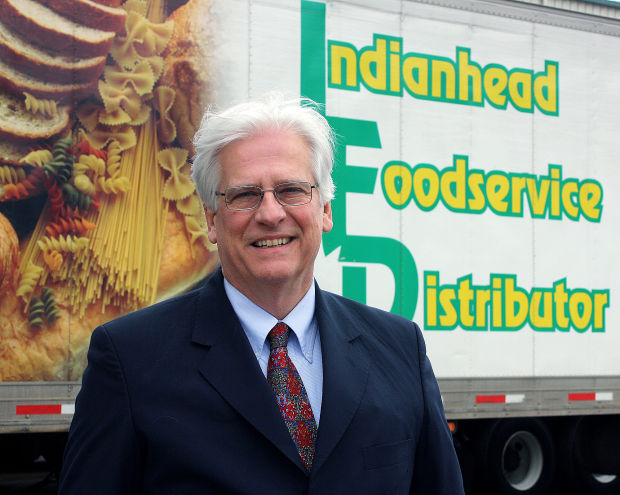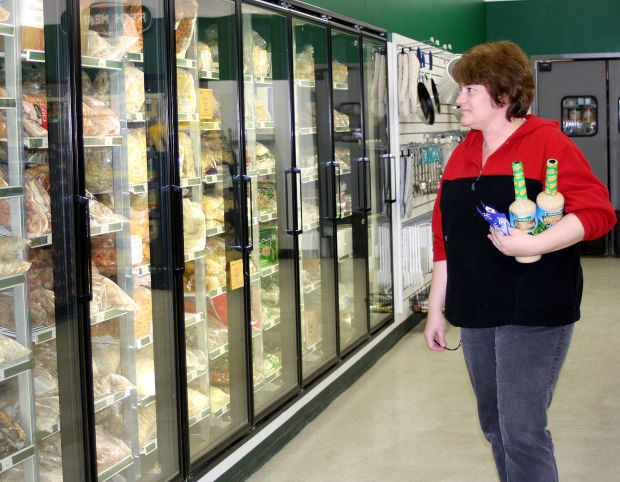|
Tom Gillett was wooed, but was not won over. That’s because Gillett — chairman and Chief Creative Officer of Indianhead Foodservice Distributor (IFD) in Eau Claire — believed he’d already won.
A major food distributor had contacted Gillett. Over lunch, the conversation was casual. Then the corporate representative revealed the reason for the meeting: a buyout offer. “He said he’d give us a pile of money and we could do whatever we want. I told him, ‘I’d do what I do for half of what I make now and that I was already doing what I want.’ I can only drive one car at a time and I can only wear one suit at a time. I still get my hair cut where I can get one free haircut with every 10 haircuts.” Teamwork For Gillett, selling the family business would mean losing the euphoria of collectively meeting challenges. “We got this big piece of business from a customer. It was so big it challenged every piece of our organization. Everyone stepped up and we did it in style, which means the customers’ expectations were met from the get-go,” he said. “It took about two months until everything was working smoothly. We had a celebration and I said, ‘Wherever you go and whatever you do, remember this. It’s a moment you can always point to.’” Gillett’s employees share his excitement in meeting and mastering challenges. “People want to be part of something exciting. They will turn over their innate resistance to being led and allow people they trust to lead them. It won’t be without question, but the buttressing trust enables the collaboration.” Founding values Gillett attributes that foundation of trust to IFD’s values and principles. “Our value system isn’t about what the leaders say, but what our values and principles say,” he said. “Values and principles aren’t capricious or arbitrary.” Much as Warren Buffet still lives in the modest Omaha home he bought for $31,500 in 1958, Gillett revels in the business of business rather than its perks. “In family businesses, you live below your means. You have to feed the goose first. The people in the organization have to be taken care of.” That care begins on an employee’s first day. “On a hiree’s first day, I spend an hour or two talking about our history, values, principles and where we’re going. I inculcate them into the culture. I want them to feel like somebody cares about them and give them real reasons to care about the company,” Gillett said. “In a standard assessment, you’ll be asked about your pay, the working conditions, the benefits, and so on. We ask, ‘Do you feel like somebody cares about your development?’ The answer to that needs to be, ‘Yes, I do feel that.’ We’ll regularly ask, ‘Has somebody asked about your progress in the last 14 days?’ We need to know if we’re doing what needs to be done to best serve their growth. “People will commit to a company where they feel like the company cares about their development. The thing I find the most rewarding is in watching and being part of somebody’s development and I get to witness them surpassing their individual expectations.” Great growth It’s that type of personal commitment that has allowed Indianhead Foodservice to surpass expectations year after year. “We do more business in a week than we did in all of 1977. When you look at that growth, you think that would have been inconceivable growth,” Gillett said. To enable that growth, its workforce has increased tenfold to 175 since 1977. However, Indianhead conceives of ever-more growth into the next decade and beyond. “We have a business plan through 2043. We want to be financially viable and we have benchmarks for that,” Gillett said. “We want to grow the business about 8 percent per year, between 6 percent to 10 percent. We want to be the dominant distributor in the education marketplace. We want to retain family ownership and control.” Regional distribution IFD distributes in Wisconsin and Minnesota, with approximately 1,500 customers. About half of its 325 food suppliers are in Wisconsin and Minnesota. “For us, local food means regional production and, fortunately, there’s a lot of food produced in our region. We lean towards local production. There’s less cost because you don’t have to transport it as far. We sell that concept to our customers,” Gillett said. Indianhead Foodservice also delivers. “We do the deliveries. We do the warehousing, the IT, the marketing, and sales. Our average truck travels 300 miles roundtrip. We also transport about half of what we sell from the processors’ docks to ours.” IFD serves restaurants, taverns, health care facilities, correctional institutions, universities and other sectors. Gillett and the company take these responsibilities seriously. “We’re responsible for feeding a lot of people who are bound to an institution or a hospital, jails, extended care, developmentally disabled, and so on. These people live there. That part of our business serves about 50,000 people a day. They can’t go home to eat. They’re residents of facilities,” Gillett said. “I want the people who work here to understand the importance of what we do. Those people depend upon us.” Service Being a mid-sized company increases Indianhead Foodservice’s reliability. “We’re flexible and nimble. The gist of the company is we spell customer with a capital C. The signature on our payroll checks says, ‘Our Customers.’ We’ve driven that into the system and our staff. We take care of the customer. Sometimes we do things that might not seem reasonable in a large corporate context, but we’re never wrong if we take care of the customer,” Gillett said. “We’re not policy driven. We’re not overburdened by corporate policies that prevent us from serving our customers. Big corporations operate with lots of policies. An example is that with a Fortune 500, if the order cutoff for shipment is 2:00, at 2:01 it will not be shipped. With us, it’s out the door.” To best serve its customers, IFD regularly assesses and reassesses the products it distributes. “We look at the quality of every item we sell. It’s not just whether it’s tasty or wholesome, but how will it perform for our customers. We analyze everything down to packaging. They fit into niches of quality stratifications and brand stratifications and regional stratifications. We open a lot of jars and jugs and taste them all,” Gillett said. “We look at the sales volume of each item and items we should perhaps consider. We look at ratios of ingredients, regional suppliers, cost, and so on. We do category reviews. We might do salad dressings or bacon or potato salad. We also access what’s currently selling, the items with a lot of movement and whether we should add them to our offerings.” Cooperative success To control costs, Indianhead Foodservice also accesses various co-ops. It is part of a purchasing co-op, UniPro Foodservice, that negotiates the purchase price on IFD’s behalf. “We might buy a truckload of Heinz ketchup every two weeks, but they’ll buy 250 truckloads every two weeks. They give us a better buy,” Gillett said. “We’re a big believer in co-ops. We also have a produce co-op and two insurance co-ops, one for health insurance and one for liability. We insure each other and ourselves. We also do business with a credit union, which is a kind of co-op. We believe in people banding together with a common interest to create an advantage for us and others.” Gillett is also a big believer in the cooperative power of his employees. “The greatest reward is the relationships I’ve developed with the people I’ve worked with. It’s the bond. We’re not hugging, but we feel like family. It’s an unspoken trust and camaraderie. They’d walk through fire for me and I’d do the same for them.” He also believes that great credit is due to people who have moved on. “I had people along the way who gave me a hand. Those mentors and advisors were the keys to our success. Some came and went, but they made all the difference. I try to pay that forward because I can’t pay them back. “If you don’t have those people, find them. We don’t do anything without help from somebody. We might like to take credit for it, but the credit is due to the generosity of others.”
0 Comments
Leave a Reply. |
AuthorWrite something about yourself. No need to be fancy, just an overview. Archives
June 2026
Categories
All
|








 RSS Feed
RSS Feed